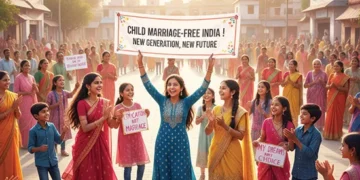 Another movie, ‘Hum Dono’, set against the backdrop of war, portrays the emotional toll that war takes on individuals and their families. The film suggests that the consequences of war extend beyond the battlefield, affecting the lives of those left behind. Dev Anand’s double role in the film provides a platform to explore themes of identity and selfdiscovery. The characters navigate personal conflicts and dilemmas, reflecting the broader human quest for understanding oneself and finding a sense of purpose.
Another movie, ‘Hum Dono’, set against the backdrop of war, portrays the emotional toll that war takes on individuals and their families. The film suggests that the consequences of war extend beyond the battlefield, affecting the lives of those left behind. Dev Anand’s double role in the film provides a platform to explore themes of identity and selfdiscovery. The characters navigate personal conflicts and dilemmas, reflecting the broader human quest for understanding oneself and finding a sense of purpose.
Symbol of times
The film promotes the idea of unity and brotherhood, transcending societal and cultural boundaries. It highlights the common humanity that connects people, regardless of differences, and suggests that understanding and empathy can bridge gaps. ‘Hum Dono’ touches upon the themes of sacrifice and duty, portraying characters who make personal sacrifices for the greater good or fulfill their responsibilities even in challenging circumstances, encouraging viewers to reflect on broader themes of love, sacrifice, and the impact of war on individuals and society.
His characters, rebellious and non-conformist, became symbolic of the changing times. Dev Anand’s revolutionary approach to cinema resonated with an audience eager for narratives that mirrored their aspirations for a modern, forwardthinking society.
Similarly, ‘Patita’, a 1953 Bollywood film directed by Amiya Chakravarty and starring Dev Anand, addresses social issues and carries a strong message about the stigma associated with unwed mothers and the challenges faced by women in society. The film’s social message revolves around compassion, understanding, and the need to overcome societal prejudices, emphasising empathy and acceptance beyond societal norms and judgments. ‘Duniya’, another film, explores the impact of corruption on society and advocates for moral integrity, justice, and collective responsibility to resist and combat corruption.
Outspoken critic
Dev Anand was an outspoken critic of the Emergency imposed by the Indian Government in 1975. He resisted attempts to curtail freedom of expression and refused to express support for the Emergency on Doordarshan, the state-owned television channel.
In 1977, after the Emergency was lifted, Dev Anand took an active role in the political scenario. He led a group of film personalities against Indira Gandhi during the General Elections held in 1977. This period marked a significant shift in Indian politics, and the elections resulted in the end of Indira Gandhi’s Government.
Philosophy of life
Dev Anand, the iconic Bollywood figure, embodied a unique life philosophy evident both on and off the screen. Fueled by eternal optimism, he faced challenges with a contagious smile and maintained a hopeful outlook in adversity.
A staunch nonconformist, he championed individuality, often navigating his own path in both personal and professional realms, encouraging others to do the same.
Dev Anand’s passion for the transformative power of cinema defined his career, as he saw it not just as entertainment but as a medium to inspire and convey meaningful messages. His enduring relevance in Indian cinema stemmed from an openness to change, embracing new ideas and genres with flexibility.
Known for his charismatic personality, zest for life, and a ‘never retiring’ attitude, Dev Anand’s belief in destiny shaped his perception of life as a series of predetermined experiences guiding individuals along their unique paths. His legacy extends far beyond films, inspiring individuals in the realms of Indian cinema and beyond.
As we celebrate 100 years of Dev Anand, we honour not just a cinematic maestro but a nationalist and revolutionist whose legacy transcends the boundaries of entertainment. Continuing to inspire, entertain, and stimulate contemplation, his movies serve as a testament to the influential role of cinema in shaping a nation’s ethos, a sentiment beautifully captured in the lyrics of the song main zindagee ka saath nibhaata chala gaya har fikr ko dhunen mein udaata chala gaya…….”

































